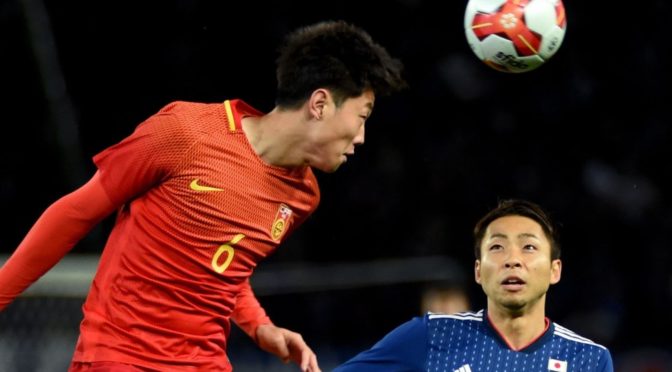Here is today’s China Sports column for SupChina, which you can read in full here. Below is a summary of what went on this week.
Circumventing the rules
A newly-arrived foreigner in China could be forgiven for thinking there are a lot of rules. But the trick to being successful, he or she might soon learn, isn’t learning to follow the rules, but mastering the act of working around them
There are countless examples: couples in Shanghai divorcing in order to take advantage of a property policy that benefits singletons, parents demanding that students be allowed to bring transmitting devices to school in order to cheat on exams, local officials inflating economic data to win promotions, and so on.
But nowhere is rule-bending more prevalent in Chinese society than in soccer.
When reform plans for the sport were announced three years ago, much of the resulting influx of new money did not come from those with a genuine interest in promoting the game, but from investors looking to ride the wave and make a quick buck.
A story once told to your correspondent relays how more than 100 entities rushed to register themselves as football clubs with the Beijing Football Association the day following the announcement of the sport’s reforms. It’s a safe bet that the majority of those entities were not in fact football clubs, nor were they ever intending to be – they simply wanted a piece of China’s latest pie, so planned to pass themselves off as grateful recipients.
And so we come to soccer’s latest rule bending, found in the highest echelon of the sport in China: the Chinese Super League (CSL).
To read the column in full and hear about the latest moves being made by the clubs in their ongoing battle to outwit the authorities, please head over to SupChina here.
$henzhen secures WTA Finals
In tennis, the WTA Finals – the season-ending showpiece for the Top 8 singles players and doubles teams – is moving to Shenzhen in a massive 10-year deal, starting from 2019. Shenzhen saw off competition from Manchester, Prague and the Russian city of St Petersburg, but existing host Singapore, whose deal will expire after the 2018 tournament, was known to have considered an extension. The prize money will now double to a record $14m per tournament from 2019, with Chinese real estate developer Gemdale the chief backer of the city’s bid, which also includes the promise of a new state-of-the-art 12,000-seat venue.
Shenzhen is one of China’s most vibrant cities and the new deal will certainly make things convenient for WTA officials, since the Elite Trophy, for players ranked 9-19 in the world (plus one wildcard), will continue to be held in Zhuhai, an hour’s ferry ride away, at least until 2019, when Zhuhai’s current deal expires. The order of the tournaments will now be reversed so that the WTA Finals is, sensibly, the season’s final tournament.
Additionally, over the past decade, the WTA has been steadily expanding its tournament offering in greater China. In addition to Zhuhai, this season will see Premier tournaments in Wuhan and Beijing, International tournaments in Shenzhen, Taipei, Nanchang, Guangzhou, Tianjin and Hong Kong and 125k Series events in Zhengzhou and Anning. That expansion went hand-in-hand with the rise of Li Na – who won the 2011 French Open and 2014 Australian Open – but China has been struggling to find a true successor to Li, despite five women currently ranked in the world’s Top 100.
This week’s full column can be read here, while there are also links to stories about how the 2022 Olympics – whose venues are due to be completed next year – turned China onto skiing, the latest China rankings for NBA jersey sales, China’s ancient – but thriving – sports photographer, and the player who slammed his former Chinese soccer team, saying they had no interest in winning.


